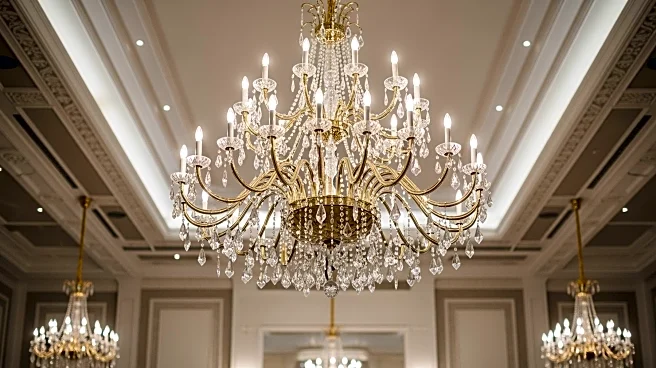What's Happening?
Senator Ruben Gallego has criticized President Trump's new ballroom project at the White House, labeling it a distraction from more pressing national issues. The ballroom, which is set to cost $300 million, is being funded by President Trump and several
major corporations, including Amazon and Apple. Gallego argues that the focus on the ballroom detracts from addressing economic challenges faced by everyday Americans, such as inflation and tariffs. The project has also sparked ethical concerns due to its funding sources and lack of prior approval from the National Capital Planning Commission.
Why It's Important?
Senator Gallego's criticism underscores the political and ethical implications of President Trump's ballroom project. The focus on a privately-funded renovation at the White House raises questions about the priorities of the administration, especially in the context of economic challenges affecting the public. The involvement of major corporations in funding the project may lead to scrutiny over potential conflicts of interest and influence in government decisions. This development highlights the tension between personal legacy projects and public policy priorities, impacting political discourse and public perception.
What's Next?
The ballroom project may continue to face scrutiny from political leaders and the public, particularly regarding its funding and approval process. Potential reactions from stakeholders could include calls for increased transparency and accountability in federal construction projects. The debate over the project's significance may influence future discussions on government spending and infrastructure priorities. Additionally, the naming of the ballroom remains undecided, with President Trump denying plans to name it after himself, which could further impact public perception.















